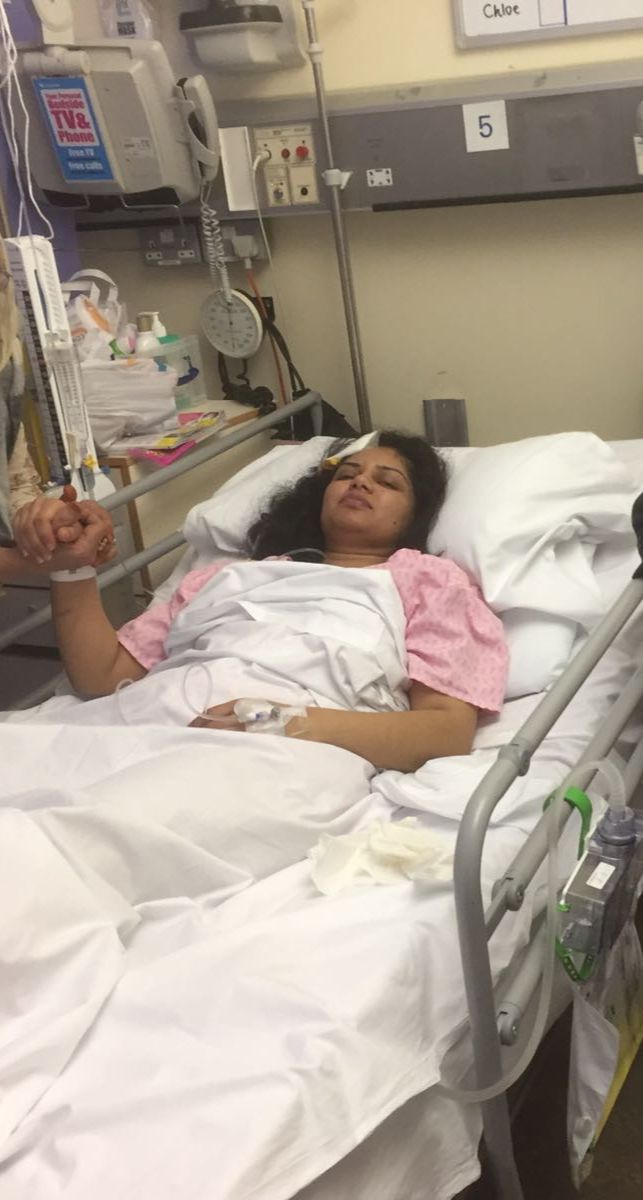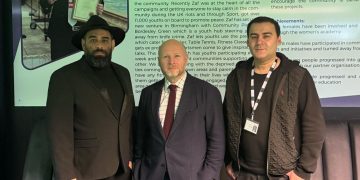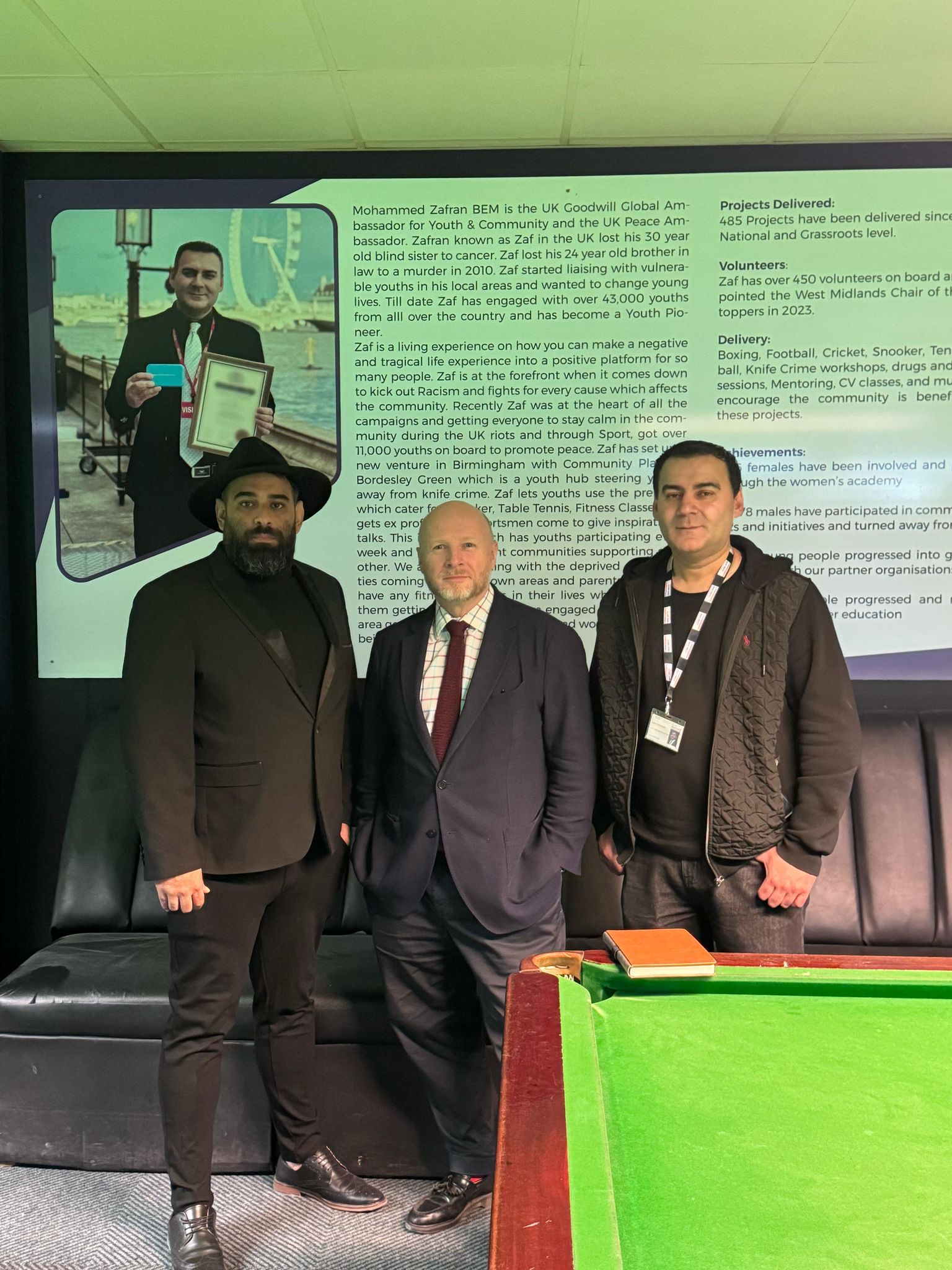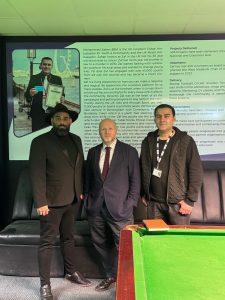A mum diagnosed with a potentially fatal brain condition more than two years after a Hospital Trust failed to spot a tumour is calling for lessons to be learned.
Samia Tahir has now spoken for the first time about the ongoing impact hydrocephalus, a build-up of excess fluid which puts pressure on the brain, has had on her life as she supports a major awareness campaign.
The 36-year-old from Altrincham was diagnosed with the condition at the end of April 2017 after she was admitted to Wythenshawe Hospital with a severe headache, vomiting and a swollen face.
Samia, a mum-of-two is married to Tahir Saleem, had undergone a CT scan at the hospital in March 2015 but a non-cancerous tumour wasn’t picked up. She had been complaining of headache, fear of light and blurred vision.
Samia continued to complain of migraine-type symptoms and neck pain. She attended various appointments at the hospital on a number of occasions over the next two years before she was admitted as an emergency in April 2017.
She underwent surgery to drain fluid from her brain and remove the tumour and spent around six weeks in hospital.
Samia, an admin clerk at Manchester University Foundation Trust, has cognitive and memory problems. She has instructed expert medical negligence lawyers at Irwin Mitchell to investigate and help her access the specialist therapies and support she requires.
Manchester University Hospitals NHS Foundation Trust, which runs Wythenshawe Hospital, admitted a breach of duty in that it failed to diagnose Samia’s tumour in March 2015. However, it currently denies that the delay in diagnosis caused Samia’s hydrocephalus and cognitive problems.
Samia and her legal team at Irwin Mitchell are marking Hydrocephalus Awareness Week. Running until 13 March, the campaign aims to put a spotlight on the condition and support available.
Nicola Ashton, the expert medical negligence lawyer at Irwin Mitchell representing Samia, said: “Hydrocephalus is caused by a build-up of fluid on the brain which creates increased pressure, which in turn can damage the brain. If left untreated, hydrocephalus can be fatal, so its impact should never be downplayed.
“The last few years and trying to come to terms with what happened understandably has been incredibly difficult for Samia and her family. She has had a number of concerns about what happened to her; the Trust’s admission that it failed to diagnose her tumour is particularly worrying.
“While nothing can make up for what Samia has been through we’re determined to help her access the specialist therapies she requires.
“She has shown a huge amount of courage in sharing her story to help others and we join her in supporting this important campaign. It’s also vital that the Trust learns lessons from the issues identified in her care.”
Samia now has attentional and information processing problems. She has also struggled with issues like anxiety, a low mood and fatigue.
Despite the problems, she is trying to move forward with her life and is wanting to become involved with The Brain Tumour Charity.
Samia said: “It’s been an incredibly difficult few years and I’m still coming to terms with everything that has happened. While I look physically well, it’s been hard coping with my hidden symptoms – like memory problems and fatigue.
“I was a lot more happy go lucky before my hydrocephalus and surgery and had a great outlook on life. Now I find my attitude towards things has changed. I’m not as calm as I used to be and get frustrated that I’m not as independent as I was. Even small things like putting jars back in the wrong place or mixing up clothes frustrate me.”
“I also feel that I’m not able to help the children as much with their homework as I can make mistakes so it’s unfair on them.
“I know nothing can change what I’ve been through, but I hope that by sharing my story I can help others who may be going through similar issues.
“I had to leave my job role as PA and downgrade to an admin clerk as I was forgetting tasks that were given to me by my manager and I began making mistakes.
“Hydrocephalus has had a big impact on my life but I’m so grateful to everyone who has supported me. People affected by hydrocephalus shouldn’t feel they have to suffer alone as help and is support is out there.”


















